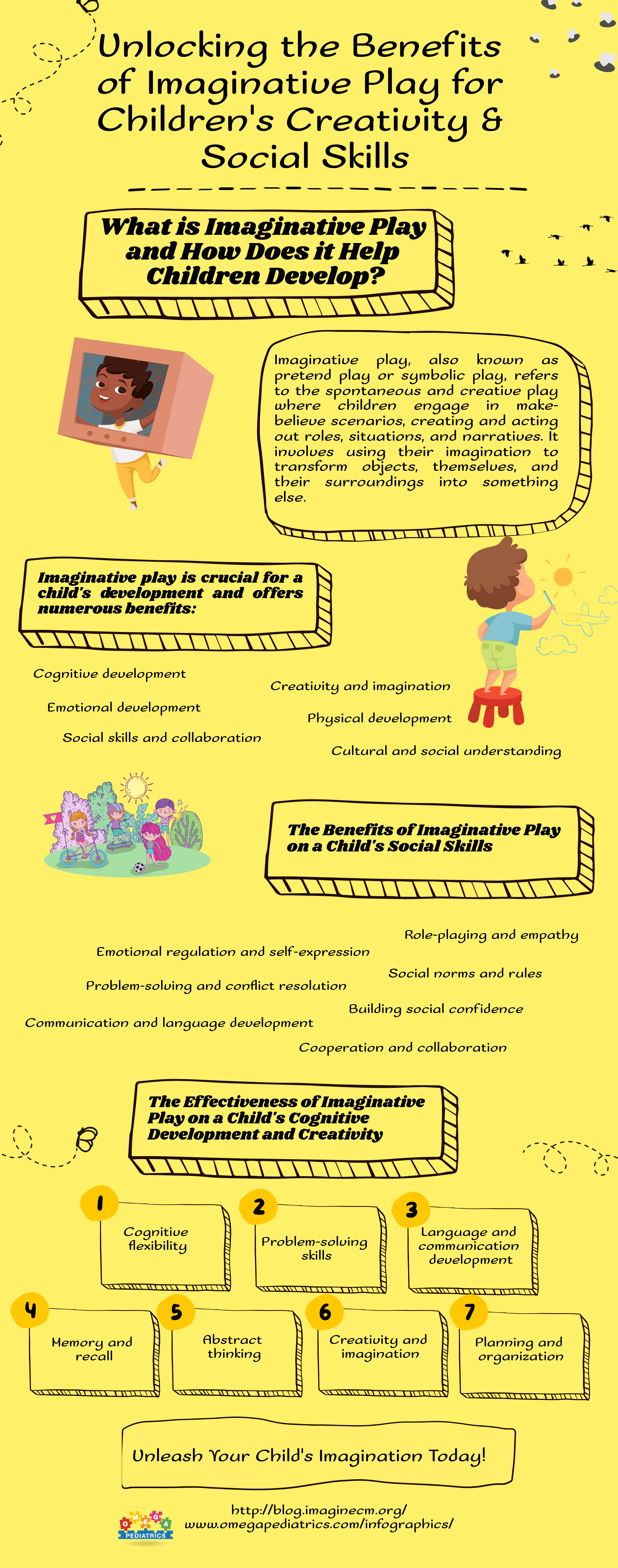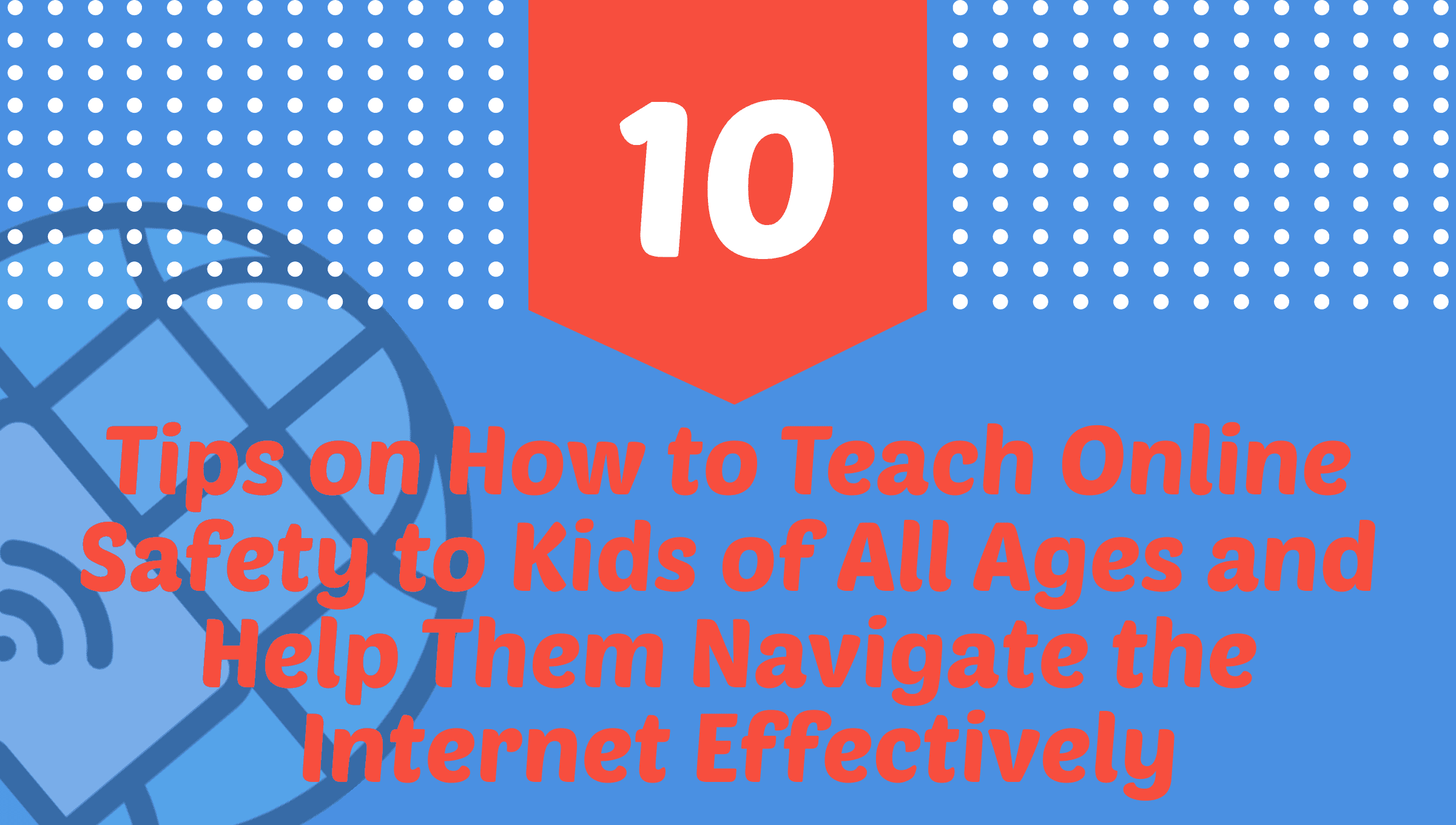
What is Imaginative Play and How Does it Help Children Develop?
Imaginative play, also known as pretend play or symbolic play, refers to the spontaneous and creative play where children engage in make-believe scenarios, creating and acting out roles, situations, and narratives. It involves using their imagination to transform objects, themselves, and their surroundings into something else.
Imaginative play is crucial for a child’s development and offers numerous benefits:
- Cognitive development: Imaginative play stimulates critical thinking, problem-solving, and decision-making skills. It encourages children to think flexibly, imagine various possibilities, and make choices as they create and navigate imaginary worlds.
- Language and communication skills: When engaging in imaginative play, children often engage in conversations, negotiate roles, and express their thoughts and ideas. This fosters language development, vocabulary expansion, and communication skills as they interact with others and convey their imaginative narratives.
- Emotional development: Imaginative play provides a safe space for children to explore and express their emotions. Through role-playing, they can experiment with different feelings, perspectives, and social interactions, helping them develop empathy, emotional intelligence, and self-regulation skills.
- Social skills and collaboration: Imaginative play often involves interaction with peers or adults. It offers opportunities for children to practice social skills, such as turn-taking, sharing, cooperation, and resolving conflicts. They learn to negotiate roles, collaborate on ideas, and engage in imaginative storytelling together, fostering teamwork and building relationships.
- Creativity and imagination: Imaginative play nurtures and expands a child’s creativity and imagination. It encourages them to generate new ideas, invent scenarios, and think outside the box. This fosters innovation, originality, and problem-solving abilities that can benefit various aspects of their lives.
- Physical development: Pretend play can involve physical movements, such as running, jumping, and manipulating objects. These actions promote gross and fine motor skills development, coordination, and spatial awareness as children engage in various pretend scenarios.
- Cultural and social understanding: Through imaginative play, children explore different roles, settings, and cultural contexts. They learn about the world around them, cultural norms, occupations, and community roles, enhancing their understanding of society and fostering cultural awareness.
The Benefits of Imaginative Play on a Child’s Social Skills
- Role-playing and empathy: Imaginative play allows children to step into different roles and pretend to be different characters. By assuming these roles, they develop a deeper understanding of others’ perspectives and emotions, fostering empathy and compassion. This helps children learn to consider others’ feelings and viewpoints, which is essential for building positive relationships.
- Cooperation and collaboration: Imaginative play often involves playing with others, which encourages cooperation and collaboration. Children learn to negotiate, share responsibilities, and work together to create and enact their imaginative scenarios. They practice taking turns, listening to others, and compromising, building essential social skills for successful interaction with peers.
- Communication and language development: Pretend play encourages children to engage in conversation, express their thoughts and ideas, and listen to others’ contributions. Through imaginative play, children learn to use language effectively, develop storytelling skills, and expand their vocabulary. They practice verbal and non-verbal communication, including body language and facial expressions, which are vital for effective social interaction.
- Problem-solving and conflict resolution: Imaginative play presents opportunities for children to encounter problems or conflicts within their play scenarios. They learn to think creatively, come up with solutions, and negotiate resolutions. This helps develop problem-solving skills and conflict resolution strategies, which are valuable for navigating social situations in real life.
- Social norms and rules: During pretend play, children often create their own imaginary rules and follow certain social norms within their play scenarios. They learn about the importance of rules, fairness, and cooperation. As they play with others, they also learn to understand and respect the rules and boundaries set by their playmates, which are crucial skills for social interaction.
- Emotional regulation and self-expression: Imaginative play provides a safe space for children to explore and express a range of emotions. They learn to identify and manage their feelings, practice self-regulation, and communicate their emotions to others. This enhances their emotional intelligence and helps them develop healthier emotional responses in social contexts.
- Building social confidence: Engaging in imaginative play allows children to experiment with different social roles, try out new behaviors, and practice social skills in a supportive and non-threatening environment. This boosts their social confidence, reduces anxiety in social situations, and prepares them for real-life social interactions.
The Effectiveness of Imaginative Play on a Child’s Cognitive Development and Creativity
- Cognitive flexibility: Imaginative play encourages children to think flexibly and engage in divergent thinking. They create imaginary scenarios, explore different possibilities, and come up with unique solutions to problems within their play. This promotes cognitive flexibility, the ability to adapt thinking and switch between different perspectives, which is valuable for problem-solving and creative thinking.
- Problem-solving skills: During imaginative play, children encounter various challenges and obstacles within their pretend scenarios. They need to use critical thinking skills to find solutions and overcome these challenges. This promotes problem-solving abilities, logical reasoning, and the ability to think analytically, all of which are essential cognitive skills.
- Language and communication development: Imaginative play involves verbal communication and storytelling. Children engage in conversations, negotiate roles, and express their thoughts and ideas, which supports language development. They expand their vocabulary, practice sentence structure, and enhance their communication skills through storytelling and role-playing, boosting their cognitive and linguistic abilities.
- Memory and recall: Imaginative play often involves remembering and recalling details of past play scenarios, characters, and storylines. Children exercise their memory and recall abilities as they navigate and build upon their imaginary worlds. This strengthens their memory skills and helps them develop effective recall strategies.
- Abstract thinking: Imaginative play encourages children to think beyond literal representations and engage in symbolic thinking. They assign meanings and attributes to objects, transforming them into something else. This nurtures abstract thinking abilities, as children understand and manipulate symbols and representations, which is important for later academic subjects such as mathematics and reading.
- Creativity and imagination: Imaginative play is inherently linked to creativity and imagination. Children use their imagination to create imaginary scenarios, invent characters, and come up with unique ideas. This fosters their creative thinking abilities, originality, and innovative problem-solving skills.
- Planning and organization: Engaging in pretend play often requires some level of planning and organization. Children need to plan roles, assign tasks, and structure their play scenarios. This promotes skills such as organization, sequencing, and developing a sense of order.



